Wondering what Norway is famous for? Buckle up and let’s talk about all the things that make Norway the place it is.
What makes Norway famous?
Nestled in the north of Europe, Norway is famous for its stunning natural beauty, rich cultural heritage, and progressive social policies. With a population of just over 5 million it is hardly a huge place. And yet, Norway has made a disproportionately significant impact on the world through its contributions to peace, environmental protection, and winter sports.
It’s a country that celebrates its past while embracing the future, a mix of tradition and modernity that can’t help but stir up intrigue. You can experience the beauty of the Norwegian fjords one day, before exploring New Nordic cuisine the next.
Whether you are hitting the road or setting sail on an amazing Northern Europe cruise, Norway is definitely worth visiting.
In this article, we will explore what Norway is famous for and why it continues to captivate visitors from all over the world.
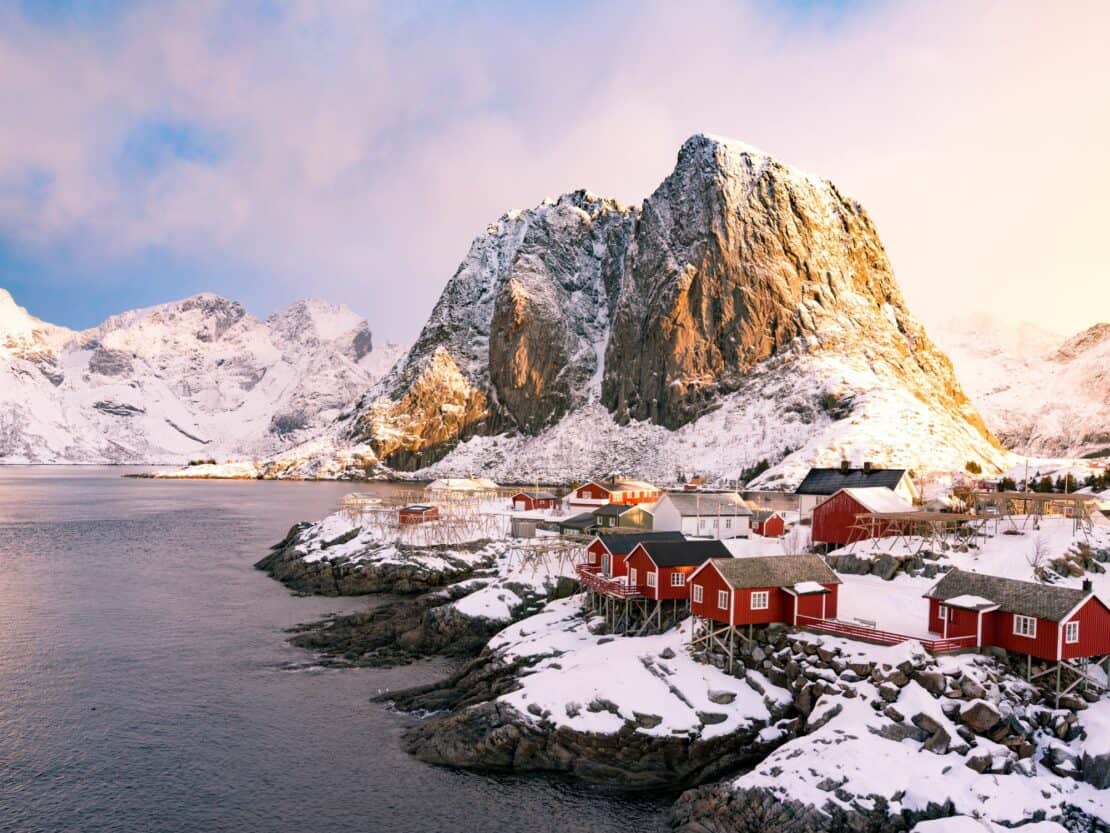
Stunning Natural Scenery
When it comes to natural beauty, Norway is hard to beat.
In fact, it could probably claim to be one of the most visually stunning places on the planet, particularly if you have a soft spot for rugged, snow-covered peaks and deep, dark forests.
From the majestic mountains to the picturesque fjords, Norway is a spectacular sight from coast to coast.
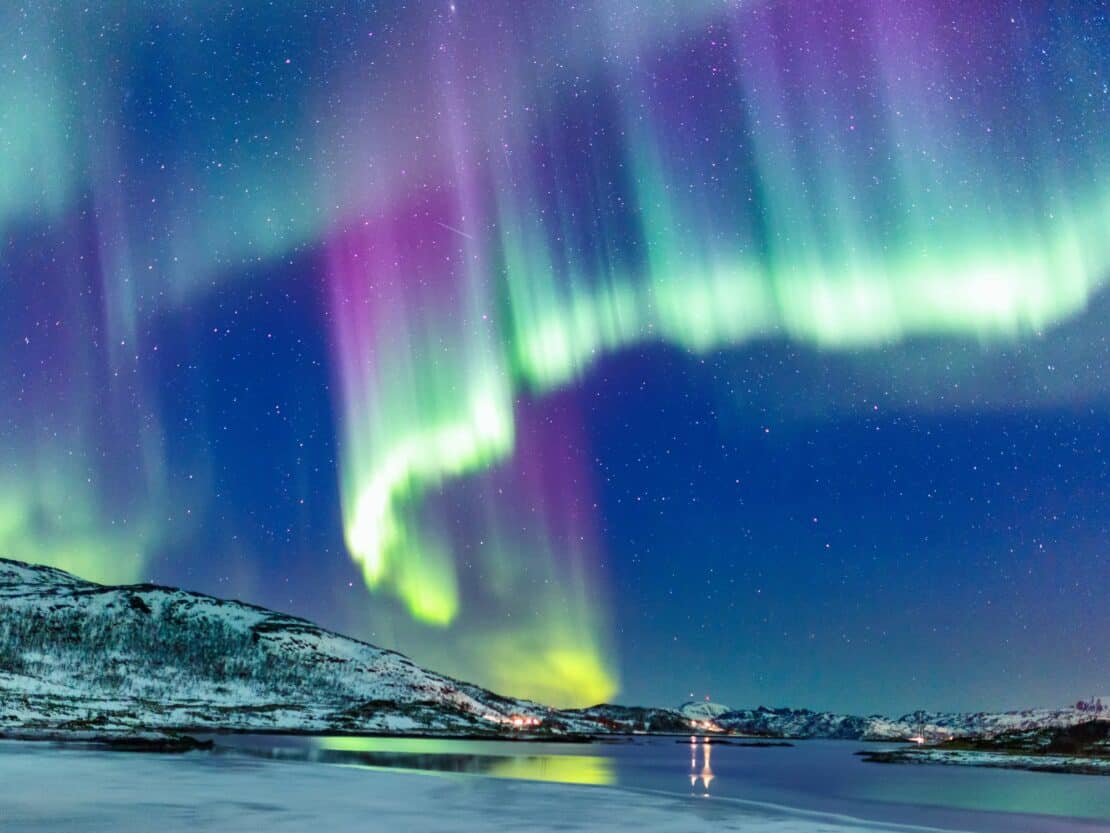
Aurora Borealis
Added to which, Norway is one of the best places in the world to see the Northern Lights, also known as Aurora Borealis.
This natural wonder sets the night sky on fire, as vivid lights dance and stretch themselves out against a backdrop of ice and snow throughout the winter months in northern Norway.
Wildlife
Then there’s the wildlife, including polar bears, reindeer, and whales. The country has an extensive network of national parks and nature reserves, which are carefully managed to protect the environment and ensure that future generations can enjoy Norway’s natural wonders. No trip to Norway is complete without an expedition or two to see bears in the wild or grey whales splashing in the icy waters off the coast.
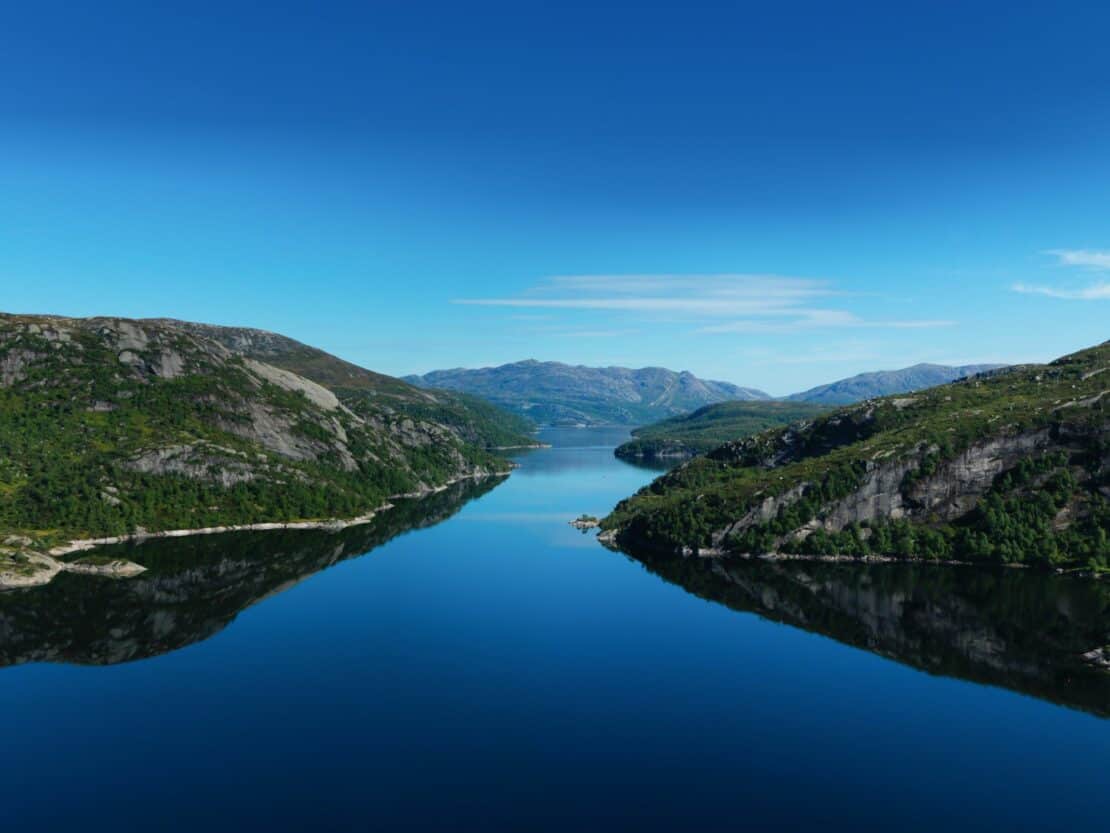
Fjords & UNESCO World Heritage Sites
And no description of the natural beauty of Norway could fail to mention the fjords. These stunning waterways, carved out of the land over thousands of years, are one of Norway’s most visually arresting sights.
One of the most popular tourist destinations in Norway is the Geirangerfjord, a UNESCO World Heritage Site that is known for its crystal blue waters. Visitors can take a scenic cruise along the fjord or hike to one of the many viewpoints for a stunning panoramic view of the surrounding mountains.
Alternatively, the Sognefjord is the longest and deepest fjord in the country, stretching over 200 kilometers from the coast to the mountains.
Want to combine your fjord experience with a city break? Why not spend one day in Bergen.
(Abi piping up here – even Oslo has its own fjord. And for a fun fact about Norway, it’s featured in the background of the world famous Scream painting by Munch.)

Nobel Peace Prize
Another thing that Norway is famous for is the Nobel Peace Prize, which is awarded annually in Oslo. Although Alfred Nobel, the founder of the prize, was himself Swedish, he stipulated that the award should be selected and given out by the Norwegian Nobel Committee, and presented in Oslo.
The Nobel Peace Prize is one of the most prestigious awards in the world and is given to individuals or organizations that have made significant contributions to promoting peace and resolving conflicts.
Over the years, the Nobel Peace Prize has been awarded to many notable figures, including Martin Luther King Jr., Mother Teresa, and Nelson Mandela. The prize has also been awarded to organizations such as the International Committee of the Red Cross and Doctors Without Borders. The Nobel Peace Prize is a testament to Norway’s commitment to promoting peace and social justice on a global scale.
A visit to the Nobel Institute in Oslo is a worthwhile experience, as its library is the largest of its kind in Norway.
- Recommended reading: what to add to your Norway bucket list
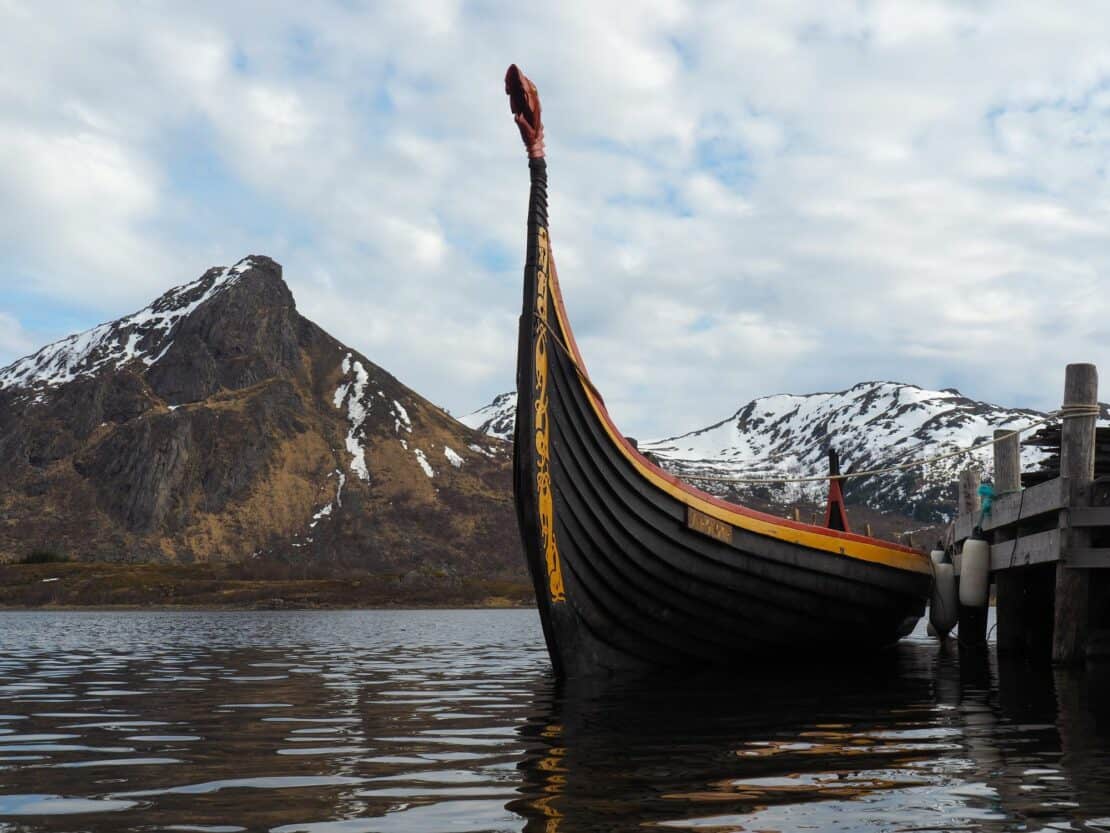
Vikings and Norse Mythology
The history and culture of Norway is bound up in stories of Vikings and Norse mythology. When most people think of Norway, they will conjure up an image of horned helmets, long boats, and fascinating sagas littered with giants, gods, and magical swords.
While tales of Thor and Loki might be fanciful, the Vikings certainly existed. These seafaring warriors raided and traded in Europe between the 8th and 11th centuries, and left a lasting impact on the history and culture of Norway, Scandinavia, and much of the rest of Europe.
They became kings in the north of England, established colonies in Ireland, Iceland, and North America, and traveled as far as Russia and Byzantium (modern-day Istanbul). Their legacy can be found across Europe, and exploring this rich and fascinating history is one of the most exciting things to do on a Norwegian vacation.
Norse mythology is also an important part of Norway’s cultural heritage. The ancient Norse gods and goddesses, such as Odin and Freya, were worshipped by the Vikings and are still celebrated today in festivals and traditions. The mythology is also a source of inspiration for many artists and writers, both in Norway and around the world. They even provide inspiration for comic book superheroes!
- Recommended reading: what is Croatia famous for?
Oil and Gas Production
One of the reasons for Norway’s disproportionate impact on the world stage, and the driver for many of its progressive polices and social welfare programs, is its oil and gas reserves. The country is one of the largest producers of oil and gas in Europe, making it incredibly self-sufficient, and helping to fuel a burgeoning economy and supportive and productive welfare state.
The North Sea, located off the coast of Norway, is home to vast reserves of oil and gas, which are extracted by companies such as Equinor (formerly Statoil).
While the benefits of these reserves is undeniable, the oil and gas industry does occupy a somewhat controversial position in Norway, with many arguing that it has had negative impacts on the environment and contributed to climate change. These days the government has taken steps to reduce its emissions and is attempting to move away from its dependence on oil and gas, with investment in renewable energy infrastructure.
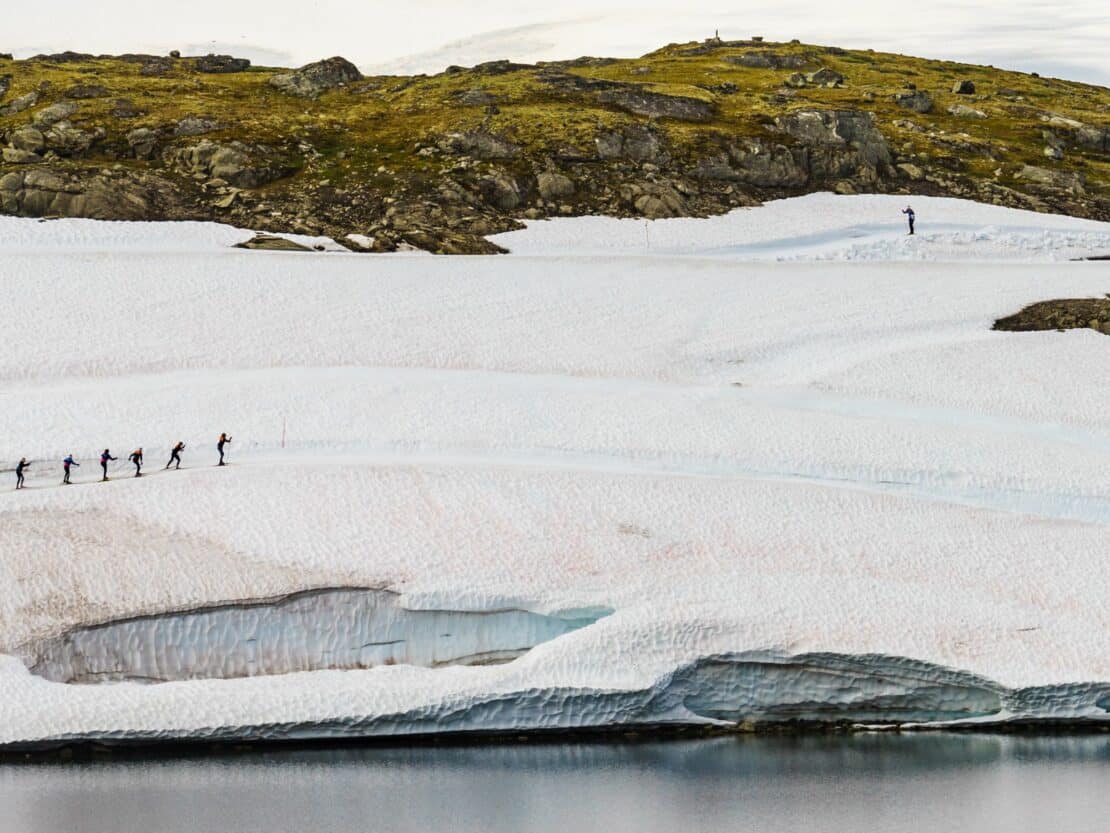
Winter Sports and Outdoor Activities
As you might expect from a country that is covered in snow for much of the year, Norwegians go mad for winter sports. Skiing is considered the national sport, and is easily the most popular pastime, but all Norwegians love a wide range of winter sports, from biathlon to ski jumping.
Norway has a long history of success in the Winter Olympics, and has produced many world-class athletes in skiing, skating, and curling, to name just a few. With this passion and enthusiasm, not to mention the snowy climate and abundance of mountains, Norway makes a wonderful destination for winter sports enthusiasts.
But Norway is not just about winter sports. It is a great place to go for all kinds of outdoor activities, from hiking to kayaking. The country’s natural beauty and well-maintained trails make it easy for visitors to explore the great outdoors and connect with nature.
Music and Arts Scene
Norway has a thriving music and arts scene, with many talented artists and musicians calling the country home, and it is a fantastic vacation destination for anyone who loves music, art, dance, and theater. The Norwegian music scene is known for its diversity and innovation, with diverse artists such as Kygo, Sigrid, and Aurora gaining international success and recognition over the last few years.
In addition to music, Norway is also home to a vibrant arts community, with many talented painters, sculptors, and photographers showcasing their work in galleries and exhibitions around the country. The country’s rich cultural heritage is also celebrated through traditional folk music and dance, which is still performed at festivals and events throughout Norway.
Cuisine
Finally, one of Norway’s greatest attractions is its cuisine. Driven by fresh, locally-sourced ingredients, Norway is at the forefront of the New Nordic culinary movement, epitomised by a commitment to freshness, purity, and simplicity. Norwegian cooking tends to be seasonal, and full of unique flavors found only in the country itself like lingonberry, juniper, and dill. The standout element of Norwegian cooking is its seafood, with smoked salmon, rakfisk, lutefisk, and pickled herring all prominent.
So, what is Norway famous for? Rather a lot, as it turns out.




